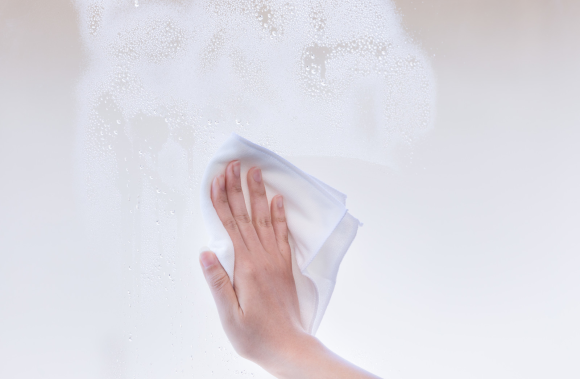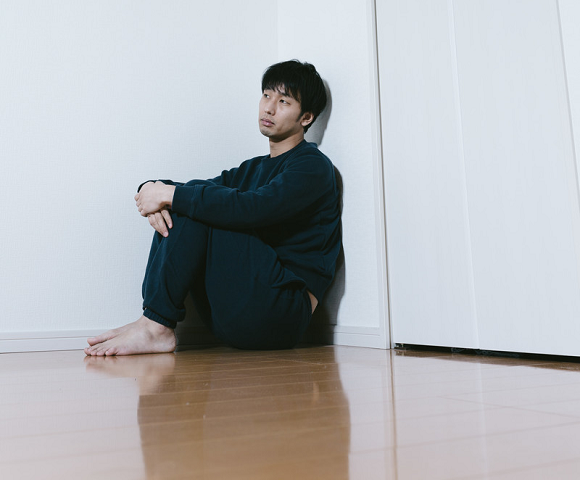
Demand grows more than 10 times in size in just five years as Japanese family dynamics change.
As time passes, technology advances, and economies evolve, certain industries will shrink. For example, electronics manufacturing used to be a huge part of the Japanese economy, but it’s been in contraction for many years, with Casio’s exit from the digital camera game the most recent example.
But on the other hand, some industries can see huge growth due to socioeconomic trends. So if you’re hunting for a job in Japan, and you want to be part of a rapidly expanding field, you might want to consider a position in tokushu soji, or “special cleaning” industry.
What makes the cleaning special? Well, tokushu soji companies come in and clean the homes of senior citizens who have died alone. Back in the old days, this is something that was almost always handled by surviving relatives, often the deceased’s children, and in fact it used to be far more common than it is today for elderly parents to live with their offspring in multi-generational homes.
Things have changed, though. As families become smaller and more people move farther away from home to seek out academic or professional opportunities, the number of seniors in Japan who live alone has been steadily increasing, from roughly 4.1 million in 2010 to 6.55 million in 2016 (according to statistics from the Ministry of Health, Labor and Welfare). In response, there are now over 5,000 companies offering special cleaning services in Japan, which is 15 times as many as there were just five years ago.
Aside from recycling or otherwise disposing of the deceased’s possessions, special cleaning companies have to clean and disinfect the home. Sometimes a significant amount of time will have passed before someone discovered that the resident had passed away, and in addition to using professional-grade cleaners and pesticides, special cleaning staff often wear protective clothing to prevent the spread of infectious diseases.
While cleaning and waste disposal are the primary services offered, some special cleaning companies have expanded their role to coordinating funeral services. Many also believe that respectful treatment of surviving relatives is part of their duties, and the Special Cleaning Center, and industry group formed in 2013, offers training and certification programs to ensure high-quality service in both the technical and human aspects of the job.
With Japan’s birth rate steadily falling, demand for special cleaning services is likely to continue to grow, as families get smaller and the population gets older. It’s no doubt a difficult job, but it serves a valuable purpose for society, especially when someone passes away and leaves behind six tons of porno mags.
Source: Mainichi Shimbun via Jin
Top image: Pakutaso
Insert image: Pakutaso
Follow Casey on Twitter, where he’s very much alive, but probably should clean his apartment anyway.


 Japan’s cherry blossom season predicted to start earlier than we’d thought, especially in Tokyo
Japan’s cherry blossom season predicted to start earlier than we’d thought, especially in Tokyo Starbucks Japan unveils new sakura cherry blossom collection for hanami season 2026
Starbucks Japan unveils new sakura cherry blossom collection for hanami season 2026 One Piece creator has hidden secret of anime treasure’s identity in chest at bottom of real-world ocean
One Piece creator has hidden secret of anime treasure’s identity in chest at bottom of real-world ocean Japan’s Human Washing Machine pods are now on sale for home use, and they’re not cheap
Japan’s Human Washing Machine pods are now on sale for home use, and they’re not cheap Starbucks Japan releases new sakura goods and drinkware for cherry blossom season 2026
Starbucks Japan releases new sakura goods and drinkware for cherry blossom season 2026 Japan’s cherry blossom season predicted to start earlier than we’d thought, especially in Tokyo
Japan’s cherry blossom season predicted to start earlier than we’d thought, especially in Tokyo Starbucks Japan unveils new sakura cherry blossom collection for hanami season 2026
Starbucks Japan unveils new sakura cherry blossom collection for hanami season 2026 One Piece creator has hidden secret of anime treasure’s identity in chest at bottom of real-world ocean
One Piece creator has hidden secret of anime treasure’s identity in chest at bottom of real-world ocean Japan’s Human Washing Machine pods are now on sale for home use, and they’re not cheap
Japan’s Human Washing Machine pods are now on sale for home use, and they’re not cheap Starbucks Japan releases new sakura goods and drinkware for cherry blossom season 2026
Starbucks Japan releases new sakura goods and drinkware for cherry blossom season 2026 Nephew receives SD card after his uncle passes away, finds treasure trove of gems from the past
Nephew receives SD card after his uncle passes away, finds treasure trove of gems from the past Foreign tourists in Japan will get free Shinkansen tickets to promote regional tourism
Foreign tourists in Japan will get free Shinkansen tickets to promote regional tourism Mr. Sato presents the salad rice cracker showdown (no salads involved)【Taste test】
Mr. Sato presents the salad rice cracker showdown (no salads involved)【Taste test】 Viral Japanese cheesecake from Osaka has a lesser known rival called Aunt Wanda
Viral Japanese cheesecake from Osaka has a lesser known rival called Aunt Wanda Super-salty pizza sends six kids to the hospital in Japan, linguistics blamed
Super-salty pizza sends six kids to the hospital in Japan, linguistics blamed Starbucks Japan releases first-ever Hinamatsuri Girls’ Day Frappuccino
Starbucks Japan releases first-ever Hinamatsuri Girls’ Day Frappuccino Japanese restaurant chain serves Dragon Ball donuts and Senzu Beans this spring
Japanese restaurant chain serves Dragon Ball donuts and Senzu Beans this spring Is Tokyo Station’s startlingly expensive wagyu bento boxed lunch worth its high price?[Taste test]
Is Tokyo Station’s startlingly expensive wagyu bento boxed lunch worth its high price?[Taste test] Japan Extreme Budget Travel! A trip from Tokyo to Izumo for just 30,000 yen [Part 2]
Japan Extreme Budget Travel! A trip from Tokyo to Izumo for just 30,000 yen [Part 2] Japan’s craziest burger chain takes menchi katsu to new extreme levels
Japan’s craziest burger chain takes menchi katsu to new extreme levels Sakura Festival in Chiyoda mixes illuminations, boats, music, and Rilakkuma in the heart of Tokyo
Sakura Festival in Chiyoda mixes illuminations, boats, music, and Rilakkuma in the heart of Tokyo Japan’s newest Shinkansen has no seats…or passengers [Video]
Japan’s newest Shinkansen has no seats…or passengers [Video] Foreigners accounting for over 80 percent of off-course skiers needing rescue in Japan’s Hokkaido
Foreigners accounting for over 80 percent of off-course skiers needing rescue in Japan’s Hokkaido Starbucks Japan unveils new sakura Frappuccino for cherry blossom season 2026
Starbucks Japan unveils new sakura Frappuccino for cherry blossom season 2026 The 10 most annoying things foreign tourists do on Japanese trains, according to locals
The 10 most annoying things foreign tourists do on Japanese trains, according to locals Take a trip to Japan’s Dododo Land, the most irritating place on Earth
Take a trip to Japan’s Dododo Land, the most irritating place on Earth Naruto and Converse team up for new line of shinobi sneakers[Photos]
Naruto and Converse team up for new line of shinobi sneakers[Photos] Survey asks foreign tourists what bothered them in Japan, more than half gave same answer
Survey asks foreign tourists what bothered them in Japan, more than half gave same answer Japan’s human washing machines will go on sale to general public, demos to be held in Tokyo
Japan’s human washing machines will go on sale to general public, demos to be held in Tokyo Starbucks Japan releases new drinkware and goods for Valentine’s Day
Starbucks Japan releases new drinkware and goods for Valentine’s Day We deeply regret going into this tunnel on our walk in the mountains of Japan
We deeply regret going into this tunnel on our walk in the mountains of Japan Studio Ghibli releases Kodama forest spirits from Princess Mononoke to light up your home
Studio Ghibli releases Kodama forest spirits from Princess Mononoke to light up your home Major Japanese hotel chain says reservations via overseas booking sites may not be valid
Major Japanese hotel chain says reservations via overseas booking sites may not be valid Put sesame oil in your coffee? Japanese maker says it’s the best way to start your day【Taste test】
Put sesame oil in your coffee? Japanese maker says it’s the best way to start your day【Taste test】 No more using real katana for tourism activities, Japan’s National Police Agency says
No more using real katana for tourism activities, Japan’s National Police Agency says Nephew receives SD card after his uncle passes away, finds treasure trove of gems from the past
Nephew receives SD card after his uncle passes away, finds treasure trove of gems from the past Foreign tourists in Japan will get free Shinkansen tickets to promote regional tourism
Foreign tourists in Japan will get free Shinkansen tickets to promote regional tourism Mr. Sato presents the salad rice cracker showdown (no salads involved)【Taste test】
Mr. Sato presents the salad rice cracker showdown (no salads involved)【Taste test】 Viral Japanese cheesecake from Osaka has a lesser known rival called Aunt Wanda
Viral Japanese cheesecake from Osaka has a lesser known rival called Aunt Wanda Super-salty pizza sends six kids to the hospital in Japan, linguistics blamed
Super-salty pizza sends six kids to the hospital in Japan, linguistics blamed The joy of pancakes, and why they might kill you
The joy of pancakes, and why they might kill you Shiratani Unsuikyo: The breathtaking anime setting where Princess Mononoke was born
Shiratani Unsuikyo: The breathtaking anime setting where Princess Mononoke was born Get ready with Roland, the top-earning host in Japan【Video】
Get ready with Roland, the top-earning host in Japan【Video】 Umamusume anime cosplayers make news in U.S. for their pro football fandom【Video】
Umamusume anime cosplayers make news in U.S. for their pro football fandom【Video】 Mipig Harajuku: We visit the new micro pig cafe in Tokyo
Mipig Harajuku: We visit the new micro pig cafe in Tokyo A century’s worth of Japanese beauty trends, from silver screen chic to puffy-eyed catharsis
A century’s worth of Japanese beauty trends, from silver screen chic to puffy-eyed catharsis Is the new Shinkansen Train Desk ticket worth it?
Is the new Shinkansen Train Desk ticket worth it? The fish in rural Fukui that rivals Japan’s most auspicious sea bream
The fish in rural Fukui that rivals Japan’s most auspicious sea bream